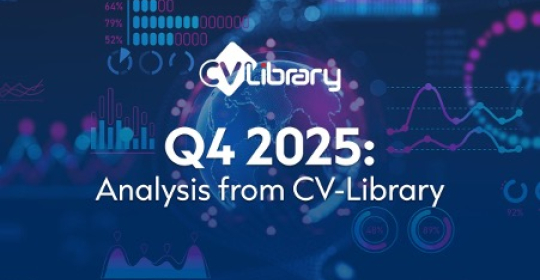- 92% of HR leaders say performance management is a critical area they need to address in the next 12-18 months
- 90% of managers still linking pay to performance reviews, whilst 64% of employees want more frequent performance catch ups
A research report launched today reveals 70% of leaders are still following traditional annual review methods despite frequent reports of organisations switching annual appraisals for more frequent reviews, and growing employee demand for regular check-ins.
The research, conducted by Clear Review, the UK performance management technology scaleup, polled 300 HR leaders, 500 general business managers and 1,000 employees across the UK in August and September 2019 on their employee appraisal processes.
The report revealed that 92% of HR leaders say performance management is a critical area they need to address in the next 12-18 months.
When asked about the frequency of performance ‘check-ins’, nearly two-thirds of employees (64%) said they wanted more regular performance conversations (ideally quarterly or monthly) despite 70% of all respondents still currently working to annual appraisals – a system now widely regarded as ineffective and outdated.
“What this report clearly points to is the overall desire and aspiration from leaders to change the system, yet a frustration that they are not quite there yet,” said Stuart Hearn, CEO, Clear Review. “Add to this the employee demand and the fact that more frequent performance reviews feed an appetite amongst employees for even more regular check-ins, and the case for modernisation is really compelling. Employees who currently have an appraisal once a year wanted bi-annual, and those who currently have bi-annual reviews cited a preference for quarterly – a clear indication that employees are realising greater value and performance development opportunities in line with the frequency of their performance conversations increasing.”
Surprisingly, the report also reveals that performance conversations are still being universally tied to pay. Fewer than 1 in 10 HR leaders said that pay conversations happened separately to performance conversations – a factor that impedes employees from talking openly about their weaknesses or worries through fear that doing so may negatively impact an impending pay rise or bonus. This being the case, it is perhaps unsurprising that more than half of HR leaders (53%) say their current performance management practices require greater focus on ‘developing performance’.
Other issues revealed by the Clear Review Performance Management Report include:
1/ Definition matters: ‘check-in’ or just a chat?
The report’s findings also revealed an undeniable disparity between what managers consider to be a performance ‘check-in’ versus what constitutes one in the minds of employees. Almost a third (31%) of employees said they only have a performance conversation ‘once a year’ yet in contradiction, ‘monthly’ performance reviews were cited as the most common frequency by managers (34%). The disparity in these statistics highlights that if managers think a conversation is a ‘check-in’ but the employee believes it to be just a chat, performance development is compromised because the conversation is one-sided and therefore contrary to modern – and much more effective – two-way performance conversations.
2/ Managers need management training
On the subject of performance management skills, Clear Review’s report reveals that the vast majority of managers feel equipped and trained to have performance conversations (92%) - and while more than two thirds (67%) of employees agree with this, a significant 40% of HR leaders do not feel their managers have the requisite performance management skills despite offering training to managers.
3/ Senior leadership and the employee gap
Encouragingly, HR leaders overwhelmingly agree that performance management is an important issue to their board (93%) and more than half (53%) say it is the best means of achieving an effective feedback culture. Similarly, 82% of managers agree that their organisation’s senior leadership team is invested in people’s performance.
However, when the same question was put to employees, well over a third (39%) said they did not believe the senior leaders in their organisation to be invested in people’s performance development
4/ HRs still tech poor
The majority of UK HR leaders recognise a need for dedicated performance management technology but have not yet identified the right solution (60%). This concurs with the fact that HR leaders are still struggling to manage performance using only standard office technology. Of any tool - performance management tech, HR software, Google Docs/MS Office, pen and paper, or nothing - the majority of HRs (59%) are still using Google Docs or MS Office in a vain attempt to manage performance development in an optimal way. This increases the administrative burden on HR and compromises the security of sensitive data.






